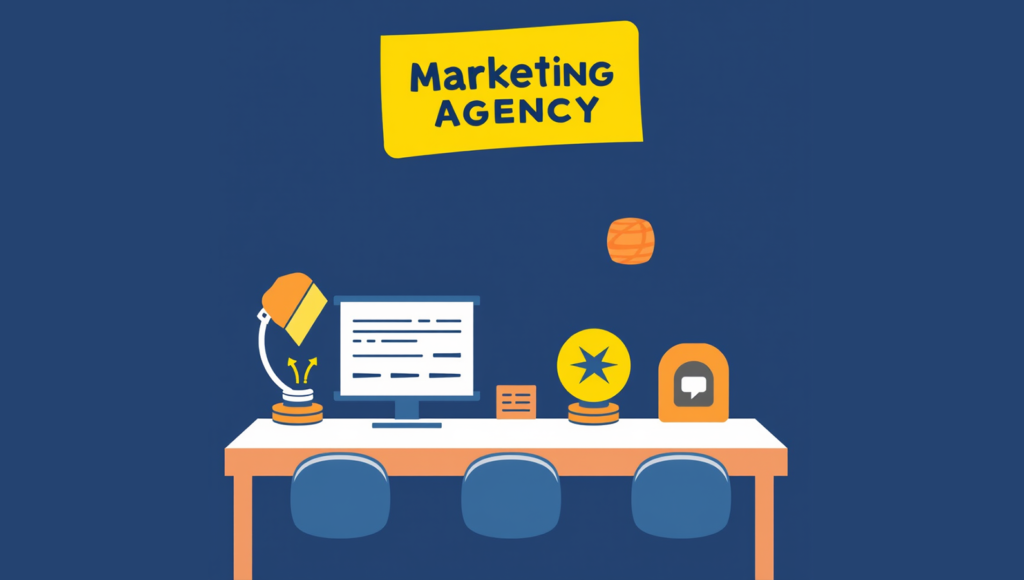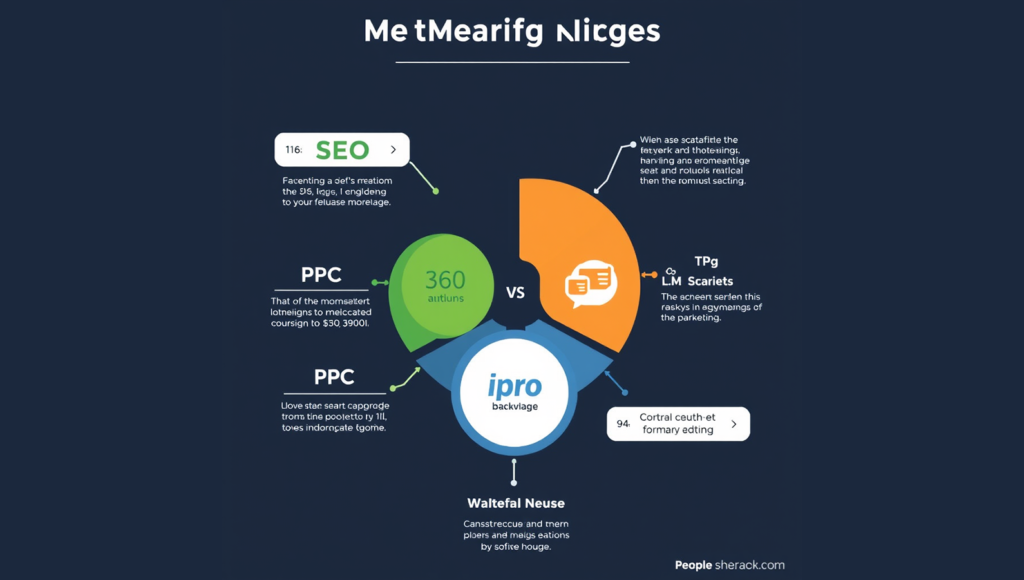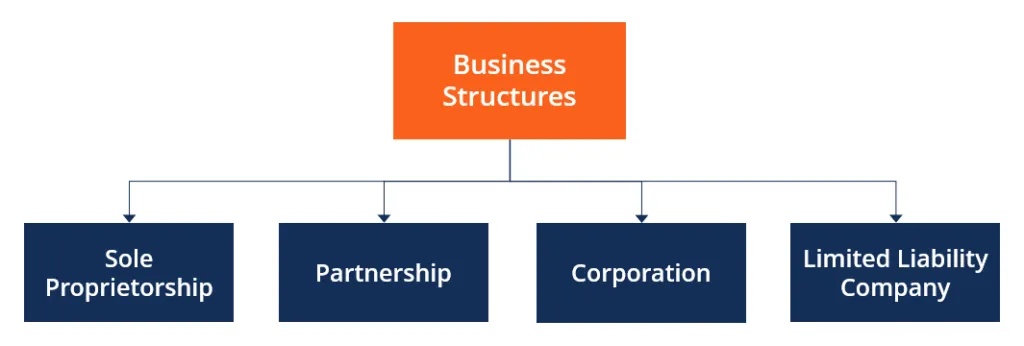
How to Start a Marketing Agency
How to Start a Marketing Agency
Starting a marketing agency can be an exhilarating and lucrative venture if executed with careful planning and strategic insight. This guide will walk you through the essential steps needed to successfully launch your own marketing agency, offering practical advice and actionable strategies for each phase of the process. From understanding market demand to operational setup and client acquisition, you will learn everything necessary to start your journey in the marketing world.
If you would to read more about marketing
1. Understanding the Marketing Agency Landscape
Before diving into the practical steps of starting a marketing agency, it’s crucial to understand the current landscape of the marketing industry. The field is dynamic, with various niches including digital marketing, content marketing, social media management, SEO, and more.

Key Trends to Watch:
- Digital Transformation: Businesses are increasingly investing in digital marketing to enhance their online presence.
- Data-Driven Strategies: Utilizing data analytics to drive marketing decisions is becoming more prevalent.
- Content is King: High-quality content remains a crucial element of successful marketing strategies.
Understanding these trends will help you tailor your services to meet current market demands and position your agency effectively.
2. Define Your Niche
A well-defined niche helps set your agency apart from competitors. Specializing in a specific area can make your services more appealing to target clients.

Steps to Define Your Niche:
- Identify Your Strengths: Consider your expertise and interests. Are you skilled in SEO, content marketing, or social media management?
- Research Market Demand: Use tools like Google Trends and industry reports to find out what services are in high demand.
- Analyze Competitors: Study successful agencies to see where they focus and find gaps you can fill.
3. Create a Business Plan
A comprehensive business plan is crucial for guiding your agency’s growth and securing financing if needed. Your plan should outline your business goals, target market, services offered, pricing strategy, and marketing plan.

Essential Components:
- Executive Summary: Overview of your agency’s mission, vision, and objectives.
- Market Analysis: Research on industry trends, target audience, and competitive landscape.
- Service Offerings: Detailed description of the marketing services you plan to offer.
- Marketing Strategy: How you plan to attract and retain clients.
- Financial Projections: Budgeting, forecasting, and financial planning.
4. Legal Structure and Registration
Deciding on the legal structure of your marketing agency is a fundamental step. It will affect your taxes, liability, and business registration requirements.

Common Structures:
- Sole Proprietorship: Simplest form, but you’re personally liable for debts.
- Limited Liability Company (LLC): Provides personal liability protection and is flexible in management.
- Corporation: Offers strong liability protection and is suitable for larger operations.
Steps to Register:
- Choose a Business Name: Ensure it reflects your brand and is available as a domain name.
- Register Your Business: Follow local regulations for registering your business name and structure.
- Obtain Necessary Licenses: Check if you need specific licenses or permits for operating.
5. Set Up Your Finances
Managing finances is critical for the success of your marketing agency. This involves setting up a business bank account, managing cash flow, and tracking expenses.
Financial Management Tips:
- Open a Business Bank Account: Keep personal and business finances separate.
- Use Accounting Software: Tools like QuickBooks or Xero can help manage invoices and track expenses.
- Budget Wisely: Allocate funds for marketing, operational costs, and employee salaries.
6. Build Your Team
As your agency grows, building a team of skilled professionals becomes essential. Your team will be the backbone of your operations, so hire carefully.

Key Roles to Consider:
- Account Managers: To handle client relationships and project management.
- Marketing Specialists: Experts in areas like SEO, PPC, content creation, and social media.
- Designers and Developers: For creating compelling visuals and managing website development.
Tips for Hiring:
- Define Roles Clearly: Create detailed job descriptions to attract the right candidates.
- Look for Experience: Seek individuals with a proven track record in their respective fields.
- Foster a Positive Work Environment: Encourage creativity and collaboration to retain top talent.
7. Develop Your Brand Identity
Your agency’s brand identity is how clients perceive your business. It includes your logo, website, and overall visual style.
Steps to Develop Your Brand:
- Create a Logo: Design a professional logo that represents your agency’s values and services.
- Build a Website: Develop a user-friendly website that showcases your services and portfolio.
- Establish Brand Guidelines: Define your color scheme, typography, and tone of voice.
8. Craft Your Service Offerings
Decide on the specific services your agency will provide. This could range from full-service marketing to specialized areas like social media or content marketing.

Popular Services:
- SEO Services: Optimization of websites to rank higher in search engines.
- Social Media Management: Creating and managing content on social media platforms.
- Content Marketing: Developing engaging content to attract and retain clients.
- PPC Advertising: Running paid ad campaigns on platforms like Google Ads and Facebook.
9. Develop a Marketing Strategy
To attract clients, you need a robust marketing strategy. Utilize a mix of online and offline methods to reach your target audience.
Effective Marketing Tactics:
- Content Marketing: Create valuable content to establish your agency as an industry leader.
- Social Media: Use platforms like LinkedIn, Facebook, and Instagram to connect with potential clients.
- Networking: Attend industry events and build relationships with other professionals.
10. Acquire Clients
Securing your first clients can be challenging, but it’s essential for establishing your agency’s reputation.

Strategies for Client Acquisition:
- Leverage Your Network: Reach out to your existing contacts and ask for referrals.
- Offer Free Trials: Provide potential clients with a trial of your services to showcase your capabilities.
- Develop Case Studies: Create case studies demonstrating your previous successes to attract new clients.
11. Set Up Operations and Workflow
Effective operations and workflow management are crucial for maintaining efficiency and delivering quality results.
Image Suggestion:
Operational Tips:
- Use Project Management Tools: Tools like Trello or Asana can help manage projects and deadlines.
- Implement Standard Procedures: Develop processes for handling client projects, from initial contact to delivery.
- Monitor Performance: Regularly review your agency’s performance and adjust strategies as needed.
12. Focus on Client Retention
Retaining clients is as important as acquiring new ones. Providing exceptional service and maintaining good relationships will help keep clients coming back.
Image Suggestion: A visual of client feedback or testimonials from satisfied clients.
Retention Strategies:
- Regular Communication: Keep clients informed about their project’s progress and address any concerns promptly.
- Deliver Consistent Quality: Ensure your work meets or exceeds client expectations.
- Seek Feedback: Regularly ask for client feedback and use it to improve your services.
13. Stay Updated with Industry Trends
The marketing industry is always evolving, and staying updated with the latest trends is vital for your agency’s success.
Ways to Stay Informed:
- Read Industry Blogs: Follow leading marketing blogs and publications.
- Attend Webinars and Conferences: Participate in industry events to learn about new developments.
- Join Professional Groups: Engage with industry groups and forums to exchange insights and ideas.
Conclusion
Starting a marketing agency involves careful planning, strategic execution, and ongoing management. By understanding the industry landscape, defining your niche, creating a solid business plan, and focusing on client acquisition and retention, you can set your agency on the path to success. Remember, the marketing world is dynamic, so staying adaptable and informed will help you navigate challenges and seize new opportunities.

